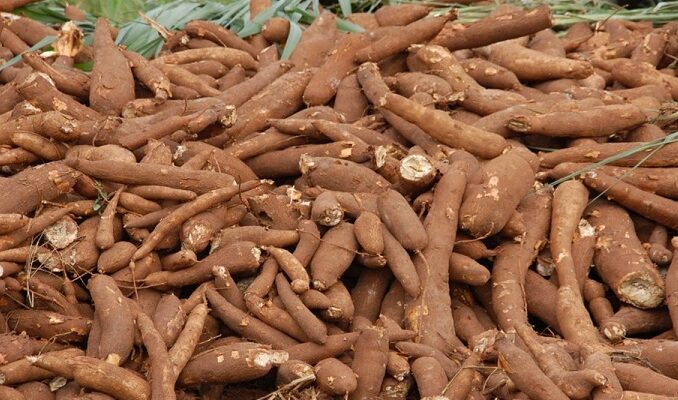Nigeria’s over 60 million metric tonnes yearly cassava output, which remains the largest in the world, is being boosted by the International Fund for Agricultural Development (IFAD).
One of the ways IFAD boosts cassava output is facilitating value chain development programne (VCDP) in the country by training Nigerian farmers/cassava seed entrepreneurs in value chain development in partnership with the National Root Crops Research Institute (NRCRI) Umudike, Abia State.
One hundred and twenty youths drawn from nine states, namely Kogi, Enugu, Nasarawa, Anambra, Benue, Ebonyi, Niger, Ogun, and Taraba, at the weekend, completed one-week intensive training in cassava seed entrepreneurship at NRCRI.
The training was conducted in two batches, lasting one week each, beginning with Kogi, Enugu, and Nasarawa states (first batch) from 1-7 August and second batch involving Anambra, Benue, Ebonyi, Niger, Ogun, and Taraba states, which lasted from 8 to 14 August 2021.
It was gathered that the trainees would be provided with some appropriate starter packs after graduation.
Speaking during the flag-off of the training, the training coordinator of the NRCRI/FGN/IFAD assisted VCDP, Dr Godwin Asumugha, said the training was to further consolidate the establishment of commercial cassava seed entrepreneurs (CSEs) among Nigerian youths to enable them to build their capacities as farmers and entrepreneurs.
He said seasoned scientists from NRCRI, IITA Ibadan, and Michael Okpara University of Agriculture Umudike, were prepared to train the trainees on the requirements to become successful CSEs towards employment creation, poverty alleviation, food security, and growing the Nigerian economy.
One of the resource persons/trainers and coordinator of the NRCRI Extension Research Programme, Dr Helen Anyaegbunam, stressed the need for scaling up adoption by smallholder farmers of the latest improved seed varieties that must include both formal and informal seeds.
According to her, while the more formal channels of a seed system remain central to upscaling, evidence shows that small-holder farmers source the majority of their seeds from the informal system, saying, “they plant, exchange and sell a wide range of varieties that fall outside the production and distribution functions of the formal sector.”
According to Asumugha, who also formally flagged off the training on behalf of the host NRCRI Executive Director, Prof Ukpabi Joseph Ukpabi, the trainees were also taken on excursion visits to NRCRI facilities like the biotechnology and soil laboratories and cassava processing factory, and some historical places in the state, including the National War Museum and Ojukwu Bunker, both in Umuahia, the state capital.
Commenting on the training, a trainee, Mr Patrick Samuel, who said he had two hectares of land and had been in the farming business for eight years, described the training as what he had been looking forward to over the years.
He stated: “VCDP would enhance our knowledge and put us inappropriately and vantage position to improve and enhance our cassava and other crops farming.”
Credit: Guardian




